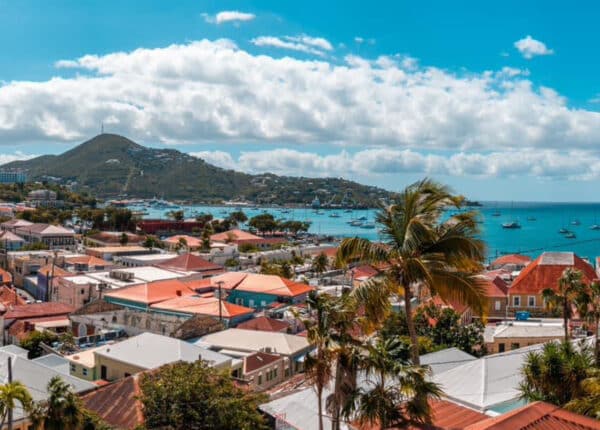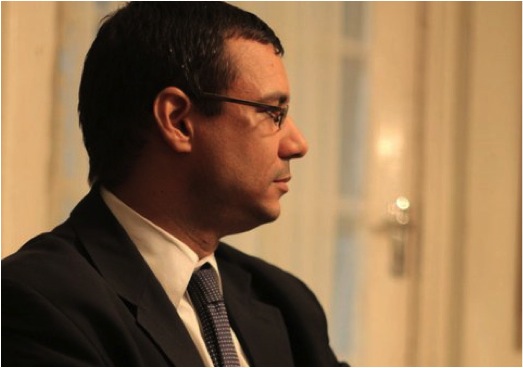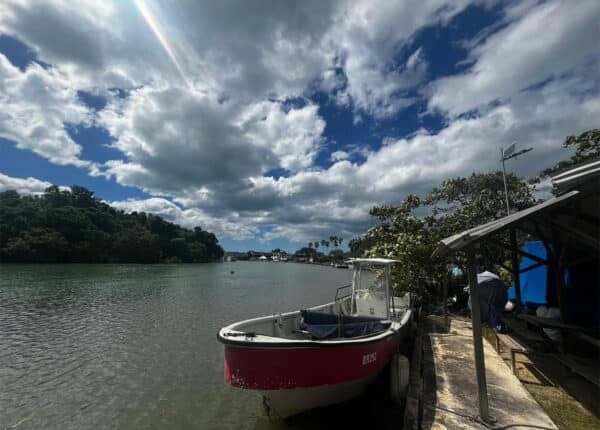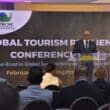Jamaica’s Kent Gammon on Politics, the Economy and Solving the Crime Problem
Jamaican’s Kent Gammon, formerly a caretaker candidate for the St Andrew South-East seat, is an attorney, lecturer at UWI and author, most recently of Two Steps Forward, Two Steps Backward — the Jamaican Story: 1972-2007. Gammon, who now has his own chambers, Kent Gammon & Company and was previously a senior associate at DunnCox, was one of the co-founders of the JLP’s Generation 2000 (G2K), the party’s young professional affiliate. CJ Politics talked to Gammon, who is also the chairman of the Jamaica Anti-Doping Disciplinary Committee, about the state of Jamaican politics, doping in Jamaican sport and how the country can solve its ongoing crime problem.
What is the biggest problem facing Jamaica today?
Getting our people united behind some common causes. There are causes that I would like to see people united around – some of the economic problems that we have, if we could just realize that our country isn’t doing as well as it should be economically. We ought to make some sacrifices for the common good, for the country. So our public sector wages deal, which is an enormous constraint on our budget, if we could get some of our public sector employees to take some of the politics out of their agitation, and put more of the national interest in it, we would all be better off. I think that’s one of the biggest concerns I have, and I’d like to see the Jamaican people rally around some common cause.
How would you describe the state of the economy, and what can be done to improve it?
I think we have too much debt. We just have far too much debt to carry vis a vis our consumption and imports. We’re not exporting enough, and we don’t have enough revenue to meet our expenses. Our neighbours in Trinidad are doing very well in terms of their exporting to us in Jamaica, and unless we can try to get a handle on our productivity, we will continue to on a debt to GDP ratio which is an unmanageable 133 percent. For example, if we could control our fuel costs – we import a lot of oil in Jamaica, and it’s a large part of our expenses – we have to find an alternative and control our energy consumption patterns to rejuvenate our productive sector. Unless we focus on those issues in a united way, that we can rally behind and not be so politically minded in how we go about these things, we will have a net deficit.
What is the current tenor of politics like in Jamaica?
I think there’s a lot of room for improvement. I don’t know if I can speak with any real authority on the rest of my Caribbean countries – but I think in Jamaica, we could be a lot more amicable in how we treat each other. I think it’s improving, but there’s still a lot of room for improvement in the tenor of our politics. We tend to divide ourselves up on issues, and it continues to hold us back, it continues to retard our economic progress. Everybody wants to make progress with their constituents over the people, and they allow themselves to get a bit too partisan, a bit too polemical, and it doesn’t do us any good.
There’s still a lot of room for improvement in the tenor of our politics. We tend to divide ourselves up on issues, and it continues to hold us back, it continues to retard our economic progress.
One of the first agenda items Prime Minister Holness mentioned when taking office was dismantling the country’s garrisons. What should be done in that regard?
It is probably one of the biggest problems we have in terms of getting our politics right in Jamaica. We use the term garrison – it’s a term that has been uniquely used for Jamaican politics. It just means that there’s a geographical section of the country that votes overwhelmingly in favour of one political party – like 95 percent – and there are other features that are associated with a garrison constituency. There tends to be a bit of your own way of carrying out your own law and order, and your own different system in some of these areas that are garrisonized. That is improving, but it still exists in many parts, and it restricts or prevents people from voting freely. If you’re unable to vote in accordance with what you want, because you have external forces preventing you from voting that way, it’s a big problem. It’s a denial of your constitutional right, and there’s a constitutional right to express your opinion and the political party you wish to have run the country, and it’s recently been enshrined in our Bill of Rights, which was recently amended and passed earlier this year. So it’s a really big problem, and I think the Prime Minister is aware of it, and that’s a good start.
How can they be dismantled?
I’ve always thought we should put undercover cops in those garrisons. I have my own thoughts – because I was a candidate for the Jamaica Labour Party, which has some of those elements, so I have a first hand view of what I think needs to be done. Some covert operations can work – it can be broken. But what will be required are a lot of resources, and our economy isn’t doing well, although it could be doing well, although we inherited it from the 2007 administration of the People’s National Party. It’s something that we have to work on.
Garrisons seem to be part of a wider crime problem. How can the crime problem be improved?
Pay the police better, compensate them better, so they’re less vulnerable to corruption. I think we can give them better resources. Not just pure compensation, but the resources they need. They need better forensic capabilities, they need better units to go into these trouble spots. When I say better units, I mean armoured units, and they need better intelligence. In the US, for example, they have witness protection programmes, which go a long way toward breaking down some of the crime problems in the United States. I think one of the biggest issues that would go a long way toward solving a lot of our problems are plea bargains. I am one of the few lawyers in our country that support plea bargains. I think it would go a long way toward solving the big-ticket crime areas. We could give immunity to certain people, and it would go a long way toward bringing down the really big fish. The Bar Association has been resisting as well, and I think that has to do with the fact that if you have plea bargaining, it’s less likely you have criminal lawyers engaged. But I am for a crime-free country, and I think that anything that will assist in reducing our crime, or limiting it [is worthwhile]. I think the plea bargain is a huge game-changer that we need to look at seriously to adopt.
You’re the head of the Jamaica Anti-Doping Disciplinary Committee. How much is doping a problem in Jamaican sport?
Well, we just had a recent disciplinary hearing in the last 72 hours with one of our top athletes, Steve Mullings. I didn’t take part in the hearing, but one of the other members was assigned to hear the matter, and he was given a lifetime ban for using a prohibited substance. It shows a strong position on cutting out any form of doping in any sport. We happen to have a good success rate in Track & Field, and it shows that the disciplinary panel is very strong in showing that very harsh measures are meted out to persons who infringe upon [the laws]. It’s a zero-tolerance approach.
You were running at one point – do you foresee a future in representational politics?
I do see being involved in representational politics again. I have a few options I’m weighing now, and I’m sure I’ll pursue one of those options in the not-too-distant future, to hopefully help forge a better country, and help our country do better in all the areas that we need to have a better life – the economy, social aspects of how the country operates. All of those things are impacted by who runs the country, who leads it, and I hope I can make a difference for the betterment of my country.







